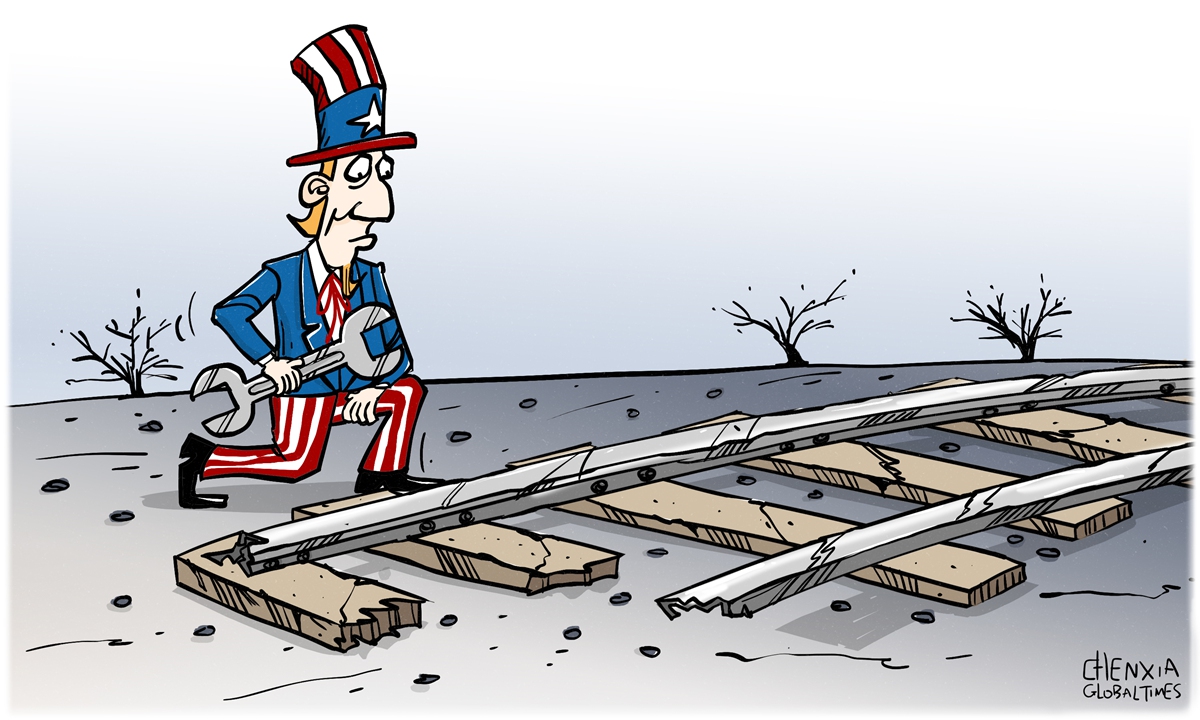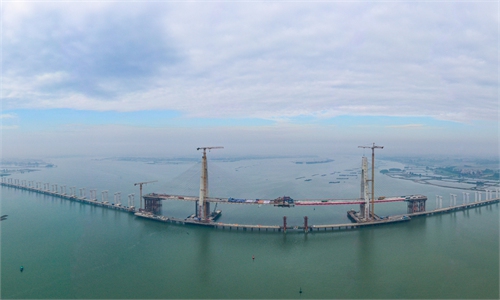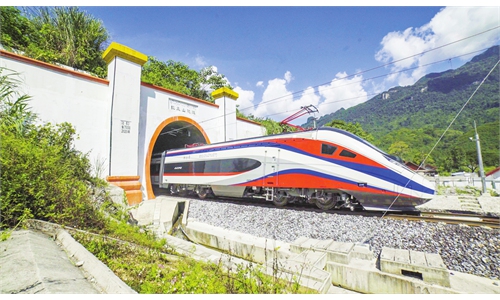
Illustration: Chen Xia/Global Times
A train hauling coal derailed in the US state of Nebraska on Tuesday, marking at least the fourth time in less than a month that a freight train has come off the rails in the US, the Washington Post reported. The derailment has once again raised concerns about infrastructure challenges in the US, following the train derailment and subsequent chemical spill in East Palestine, Ohio.The administration of US President Joe Biden last week defended its response to the freight train derailment in Ohio, but some local leaders and members of Congress demanded that more should be done. A number of US officials from both parties have been involved in the fierce argument, as they politicize derailment incidents as instruments to attack each other. At present, endless arguments, criticism, finger pointing and prevarication have taken dominance over seeking a real solution to an ongoing US infrastructure challenge and preventing similar tragedies from repeating. Unfortunately, the nation is very likely to have a hard time meeting its infrastructure goals.
Even though government data shows that derailments have declined in recent years in the US, there were still 1,049 of them last year, the Associated Press reported. Aging infrastructure may have played a role in the frequent derailment accidents, while poor and outdated management is also to blame. However, the situation is unlikely to improve in the short term, or, it may deteriorate further. American railway workers have hit a breaking point, with several thousand workers seeking to get a few days of sick leave per year - an issue that drove workers to the brink of strike last year. Fears of rail strikes are making Biden, who has been keen on placing key emphasis on his administration's success in promoting infrastructure investment across the country, very awkward.
With one of the world's largest railway networks, the US used to be the model for developing countries, but at present, the nation has performed poorly in terms of improving its infrastructure system. America's physical infrastructure is the backbone of its economy. Yet, despite its critical importance to its economy, the nation has allowed its infrastructure to fall into a state of disrepair. The White House said in 2021 that more than 30,000 people die in traffic accidents on US roads each year. More than 45,000 US bridges and one in five miles of roads are in poor condition.
It's a little bit ironic that the US suffers from a poor public transport system despite being the world's richest economy, and, what's more ridiculous is that the Biden administration has been keen on boasting about its global infrastructure programs, even though the government is incompetent in solving its domestic problems. The infrastructure issue has been used as a political show to demonstrate the Biden administration's alleged determination to revitalize the US economy and consolidate US' position as a leader in the global market. What Washington cares about is not improving infrastructure itself, but how to convince the public of their "determination" and to win more votes.
In June 2022, Biden announced that the US will mobilize $200 billion of investment in global infrastructure projects in the next five years, through grants, Federal financing, and leveraging private sector investments. The move has been viewed as part of an effort by the world's largest economy to counter China's influence and the China-proposed Belt and Road Initiative. Some US politicians want to promote their anti-China agenda in US global infrastructure initiatives but that will be futile in the end.
The US might hope to attract economies to its global infrastructure initiatives with high-standard pledges, but economies in the world could lose interest in the initiatives if US domestic infrastructure system is plagued by frequent accidents and insufficient funds. It is possible that the US' promise to "mobilize $200 billion" will turn out to be empty talk. At the very least, its foreign aid will likely to be greatly reduced if the country is unable to improve its domestic infrastructure.
Some US political elites are not only indulging in a geopolitical mind-set, their attitude toward infrastructure projects has also been twisted. We'd like to remind the US that its action is meaningless and ridiculous. Their empty talk is just a political show that will only deceive themselves instead of people in the US and the rest of world.
The author is a reporter with the Global Times. bizopinion@globaltimes.com.cn



